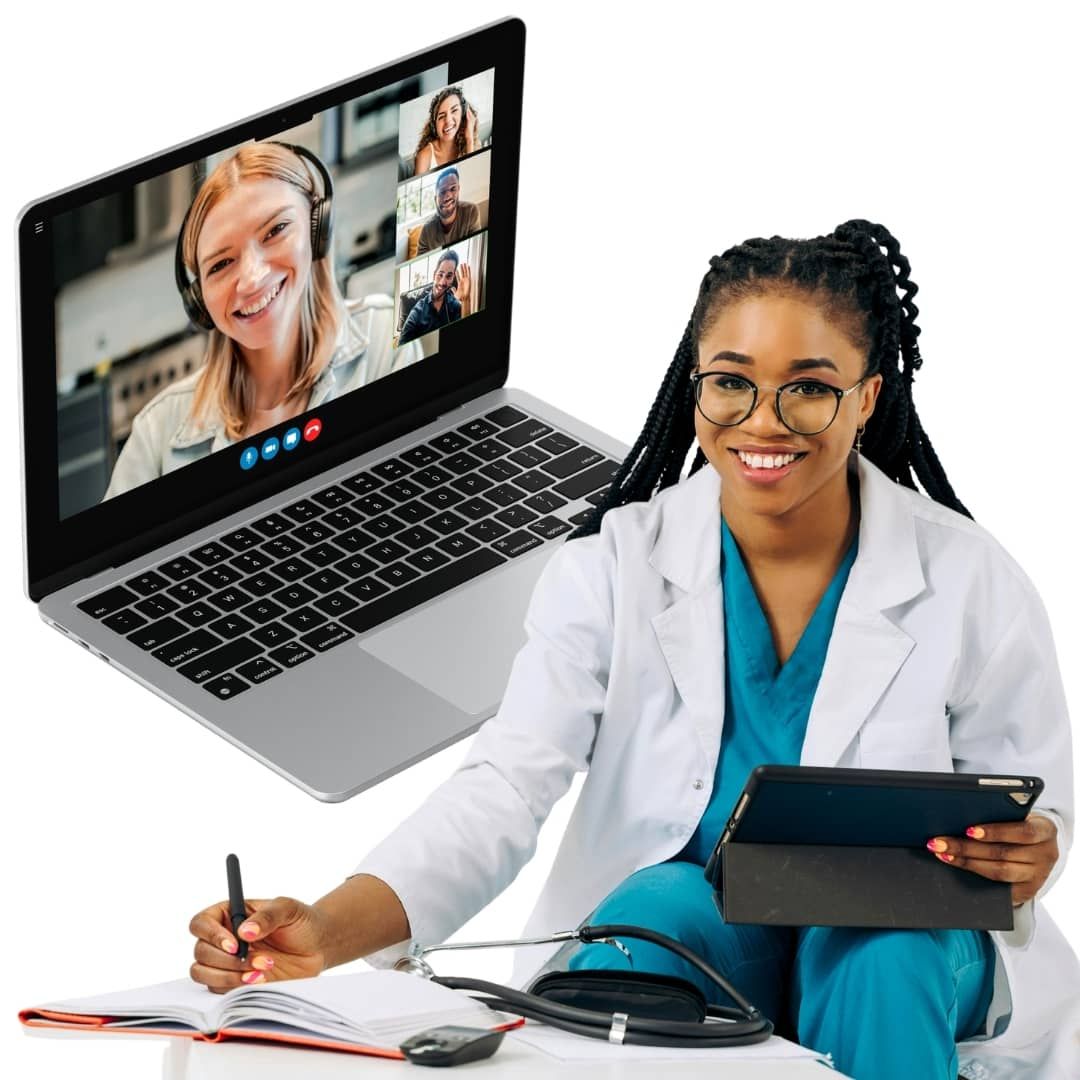Is It Hard to Become a Medical Assistant in 2026
Nov 26, 2025
Starting a healthcare career doesn’t have to feel overwhelming. If you’re wondering whether it’s hard to become a medical assistant, the truth is; it’s easier than you think when you choose the right path. This role combines practical skills with quick entry into the field, offering real opportunities for stability and growth.
At Florida Health Care Academy, you’ll gain hands-on training that prepares you for real clinical environments. The medical assistant program Orlando equips you with the tools to succeed, even if you have no prior experience in healthcare.
Table of content
- What does a medical assistant do
- What training do you need to become a medical assistant
- Education and certification requirements for medical assistants
- Key skills that help medical assistants succeed
- Challenges medical assistants might face in the role
- Why becoming a medical assistant is a smart career choice
- How to choose the right medical assistant program in Orlando
- How Florida Health Care Academy supports future medical assistants
- Is It Hard to Become a Medical Assistant in 2026 FAQs
What does a medical assistant do
Medical assistants play a vital role in patient care, working alongside doctors and nurses to support both clinical and administrative operations. On the clinical side, you’ll take vital signs, prepare exam rooms, assist during procedures, draw blood, perform EKGs, and collect lab specimens. On the administrative side, you’ll schedule appointments, manage patient records, handle insurance processing, and support front-desk operations.
This versatile role is explained further in the medical assistant job description, showing how you become an essential part of any healthcare team.
What training do you need to become a medical assistant
To become a medical assistant, you need practical, hands-on training that covers the full range of clinical and administrative duties. This includes learning phlebotomy, EKG procedures, specimen collection, infection control, and the use of electronic health records (EHRs). It also involves mastering skills like patient prep, scheduling, and medical terminology. If you’re just starting out, it helps to understand how to become a medical assistant to know what training to expect.
At Florida Health Care Academy Orlando, the medical assistant program Orlando gives you the training you need to start working quickly and confidently. You’ll complete your education in a real clinical environment with guidance from experienced instructors, so you’re prepared for what today’s healthcare employers expect.
Education and certification requirements for medical assistants
You don’t need a college degree to become a medical assistant, but formal training and certification can make a big difference when applying for jobs. Employers are more likely to hire candidates who have completed a structured program and can demonstrate real clinical competence.
Educational requirements for medical assistants
Most medical assistant programs require a high school diploma or GED to enroll. After that, you’ll follow a structured curriculum that covers anatomy, clinical procedures, lab techniques, and administrative duties.
At Florida Health Care Academy, the training prepares you to take vital signs, assist with minor procedures, perform EKGs, manage medical records, and support front-desk operations. The requirements to be a medical assistant highlight what’s needed to enter the field confidently and professionally.
Certification and hands-on training
In Florida, certification isn’t mandatory, but it can increase your hiring potential and open more career opportunities. Programs that include real lab experience and clinical practice, like the one at Florida Health Care Academy, prepare you to sit for recognized exams such as the CCMA (Certified Clinical Medical Assistant).
Certification shows that you meet national standards in clinical care and patient safety, giving you a competitive edge as you enter the workforce.
Key skills that help medical assistants succeed
Being a successful medical assistant requires more than completing your training, it takes a solid set of personal and professional skills that help you adapt to the fast pace of healthcare settings. These are some of the most important:
- Communication: You’ll interact with patients, doctors, and other staff every day, so clarity and empathy are essential.
- Attention to detail: Recording vitals, handling specimens, and entering data all require precision.
- Multitasking: You’ll manage both clinical and administrative tasks, sometimes back-to-back.
- Professionalism: Respect, punctuality, and patient confidentiality are non-negotiable in healthcare.
- Technical proficiency: Familiarity with EHR systems, EKG machines, and lab equipment is key to your daily workflow.
- Teamwork: You’ll be part of a care team, which means collaboration is just as important as competence.
These traits are expanded in the medical assistant skills article, where you can see how they translate into real clinical responsibilities.
Challenges medical assistants might face in the role
Working in healthcare is rewarding, but it also comes with pressure. Medical assistants often face tight schedules, high patient volumes, and emotionally sensitive situations. You may need to switch between drawing blood, managing a waiting room, and preparing patients for exams, all within a single shift, as outlined in the medical assistant daily tasks article.
The key is preparation. At Florida Health Care Academy, your training includes real clinical scenarios and instructor guidance, so you build the confidence and resilience needed for demanding days. You’ll learn how to prioritize tasks, manage stress, and maintain composure, skills that help you grow professionally while delivering high-quality patient care.
Why becoming a medical assistant is a smart career choice
Becoming a medical assistant is one of the fastest ways to enter the healthcare field and start making a difference. It’s a role that combines job stability, meaningful work, and future growth. Understanding the range of medical assistant specialties available allows professionals to tailor their careers to their interests and long-term plans.
- Quick entry into the workforce: You can complete your training in months and start working without spending years in school.
- High demand in Florida: Clinics, hospitals, and specialty practices across the state are hiring medical assistants to keep up with growing patient needs.
- Flexible career path: Once certified, you can work in pediatrics, cardiology, urgent care, or family medicine, and even transition into office management or nursing.
- Personal fulfillment: You’ll help patients every day, support medical teams, and play a key role in the care experience.
- Work-life balance: Many medical assistant roles offer steady hours and full-time positions, making it easier to manage your personal and professional life.
For anyone seeking a reliable, respected, and people-focused healthcare career, this is a smart place to start.
How to choose the right medical assistant program in Orlando
Not all training programs offer the same value. When choosing a medical assistant program, it’s important to look for one that includes hands-on clinical practice, experienced instructors, and support for national certification exams. You should also consider class size, scheduling options, and whether tuition includes lab fees or materials.
At Florida Health Care Academy, you get more than just a classroom education. Our medical assistant program Orlando offers real-world clinical training, guided lab instruction, and one-on-one mentorship, all designed to build your confidence and competence from day one. You’ll train in environments that mirror actual healthcare settings and get personalized support every step of the way.
How Florida Health Care Academy supports future medical assistants
At Florida Health Care Academy, we’re committed to helping you not only finish your training, but thrive in your career. Our instructors work with you closely to ensure you’re confident in every skill, from drawing blood and running EKGs to managing appointments and patient records.
You’ll benefit from:
- Small class sizes for more focused instruction
- Experienced faculty with real clinical backgrounds
- Certification prep built into your training
- Flexible payment plans to make your goals accessible
- Job readiness support, so you're prepared for interviews and workplace expectations
Is It Hard to Become a Medical Assistant in 2026 FAQs
How long does it take to become a medical assistant?
Most programs take several months to complete, depending on your schedule and curriculum.
Is certification necessary to work as a medical assistant?
Not in all states, but it boosts your job prospects and shows employers you’re qualified.
What skills are essential for medical assistants?
Communication, multitasking, accuracy, and professionalism are key to success.
Can I advance my career as a medical assistant?
Yes. Many go on to specialize, manage offices, or transition into nursing.
What is the job outlook for medical assistants?
Strong. The field continues to grow due to aging populations and expanded access to care.
Start your medical assistant training with FHCA Orlando
If you're ready to take the next step in your healthcare career, Florida Health Care Academy will help you build the skills and confidence you need. Our instructors support you from enrollment to employment, with hands-on training that matches industry needs.
Visit our Enrollment page and explore the medical assistant program Orlando to begin your career in a field that makes a real difference.










